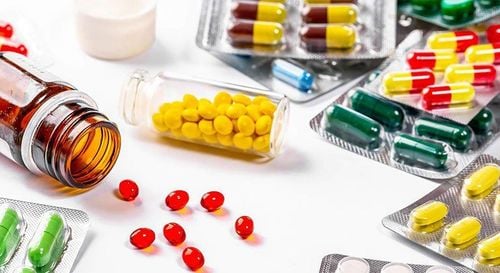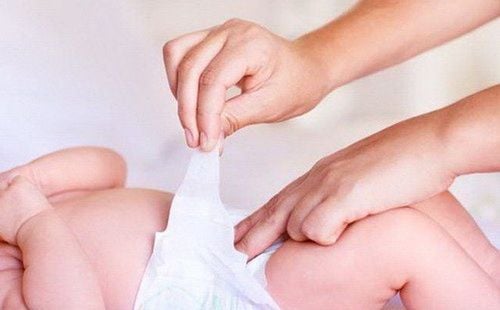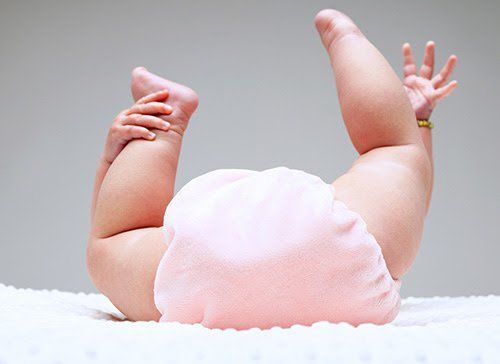This is an automatically translated article.
What things do babies need is an issue that is of great concern to many people, especially first-time parents. In fact, babies need a lot of things, parents can refer to the list of essential items for babies in this article to take better care of their children.
1. Baby clothes When it comes to baby supplies, clothes are indispensable. Children's clothing sizes are sorted by age, usually newborn, 3 months, 6 months, 9 months and 12 months. But some brands may have different classifications and may vary in size. Look for clothes with weight or height information to find the best fit for your baby. Have a couple of larger sized outfits ready before your kid really needs it because he'll grow up fast!
Prioritize the selection of soft, loose and durable clothes. Choose items with good materials that can last a long time with regular washing. Also, avoid wearing clothes with dangling strings, tassels and ribbons - these are choking hazards for babies.
Organic baby clothes are made without strong dyes or harmful chemicals, but are generally more expensive. Whichever you choose, use a gentle, child-friendly laundry detergent to avoid skin irritation.
Here are some basic clothes a newborn baby will need in each size:
Pajamas: Basic pajamas should be suitable for your baby to sleep and play at the same time. They're super convenient, since kids take frequent naps. Look for ones that have zips down the front and all the way down to the feet - they make diaper changes easy. Leggings or stretchy pants: Baby leggings make it easy to change into a dirty piece of clothing without having to change the whole outfit. The elastic waistband fits easily when the baby is in diapers and will stretch as the baby gains weight. Jumpsuits: Jumpsuits, also known as jumpers, are baby clothes (short or long sleeves) that drape over the baby's head and clip under the baby's diaper. Outer layers: Choose zippers, fleece jackets, and sweatshirts that are easy to put on and take off. The fleece overalls are also very warm and easy to change. Buy larger sizes and wide arms so you don't need scissors. Hats: Choosing the best hat for your baby depends on the season and weather. Your baby will need a wide-brimmed hat for sunny days and a warm hat that covers her ears in the winter. Socks or boots: You can buy your baby's socks and shoes at an affordable price, as she may have to replace lost ones many times. Flats are adorable, but you may not need to buy real, hard-soled shoes for your baby's first year. Some experts recommend waiting until your child learns to walk firmly, as shoes can interfere with growth. Pajamas or nightgowns: No matter how cute they look, avoid baby pajamas that make a lot of marks or are hard to take off. Some parents like infant nightgowns, others like being able to change diapers flexibly without changing the top. Special Outfits: You may want to prepare a costume or two for festive occasions, such as weddings or holidays. Many parents also like to dress their child in a special outfit for a photo shoot. Since it's hard to predict what size your baby will wear, you may want to pause buying special clothes until the event gets closer. Hair Accessories: Even if your baby has little or no hair, a colorful headband or bow will increase the cuteness factor. However, make sure that the hair accessory is not too tight or easily scratched. Watch now: How to clean, sanitize and store baby items

Quần áo là đồ dùng cần thiết cho trẻ sơ sinh
2. Cloth diapers, disposable diapers: Whether you use cloth diapers or disposable diapers, you will likely need to change 10 to 12 diapers a day. So arrange a place for the best diapers for your baby. Diaper bin: A diaper bin will help keep your home smelling fresh and tidy. Disposable Baby Wipes: Baby wipes are made from polyester, cotton, wood, or rayon and are designed for single use. Unscented wipes can be less irritating to your baby's skin. Diaper Rash Cream: You will also need a cream to prevent or treat diaper rash when your baby has a diaper rash. Diaper bag: Buy a bag big enough to hold diapers, wipes, some clothes to change, and bottles of milk that will be needed to keep the house tidy. Changing table or pad for changing diapers: You will have to change a lot of diapers, and a diaper changing table or removable pad can make this a lot more comfortable. Warm wet wipes: Warm towels can be comforting to babies when they are cleaned, especially when changed in the middle of the night. However, this item is sometimes not considered essential for babies.
3. What do babies need to protect their health? First Aid Kit: An infant's first aid kit contains useful items such as a thermometer, antiseptic ointment, and bandages. Many first aid kits also include baby cleaning supplies like nail clippers and hairbrushes. Nasopharyngeal nebulizer: You can use a nasal aspirator and physiological saline to clear your baby's nose. Teething toys: Chewing rings made of soft rubber can make your baby less uncomfortable during teething. Humidifier: Placing a humidifier in your baby's room can help ease congestion. Because it adds moisture to the air, it can also help treat dry, chapped skin. Make sure to clean the machine regularly to prevent mold from entering the air. Scissors, nail clippers, nail file or emery board: These help you safely trim and smooth your baby's nails. Baby-friendly laundry detergent: Some brands are specially formulated to be gentle on baby's skin, although brands for sensitive skin are fine as well. Baby soft bristle brush: This is especially helpful in handling crib covers. See now: Should you use a moisturizer for babies?

Đồ chơi khi mọc răng là đồ dùng cần thiết cho trẻ sơ sinh
4. Some other baby essentials Baby carrier: Baby carrier means your baby will be snuggled against you while you still have two hands free to do other things. Stroller: You'll need an easy way to get your baby out and about for vaccinations. Therefore, choose the right stroller to create comfort for both mother and baby. Car seats: A car safety seat is required if you're driving and want to bring your child with you. Cot mattresses and cribs: You'll probably want to move your baby into a crib once he's older, so it's helpful to purchase a crib in advance and have a crib ready, with a soft mattress ready. Cradle: A crib is a safe place to sleep for a baby and is a great way to keep your baby close during the first few months at home. You can place your baby's crib right next to your bed to easily feed and change diapers in the middle of the night. Night light: The light provides just enough light when parents change diapers in the middle of the night without dazzling the baby's eyes. Baby burp towel: Lightweight cloth used to absorb saliva and wipe sweat for babies. Bibs: Even before your baby starts solids, you should prepare a bib to keep clothes dry, especially if your baby drools a lot. Bottles: Newborns usually start with a 100ml bottle, but you will need a 200ml bottle or more as your baby feeds more. You will also need to buy a few extra pacifiers to change. Bottle Brush: This tool is for thorough scrubbing of small parts and crevices in baby bottles, bottle parts and clean nipples. Bottle Sterilizer: You can soak baby bottles (and other items) in boiling water to sterilize them. Or more convenient, parents can use a bottle sterilizer that uses steam or UV light to sterilize baby bottles. Pacifiers: Some babies like to suck on pacifiers, some don't. Hope the article can help parents prepare suitable items for their newborn baby, so that they can take good care of their baby in the first few days!
Please dial HOTLINE for more information or register for an appointment HERE. Download MyVinmec app to make appointments faster and to manage your bookings easily.













